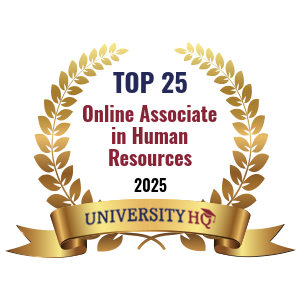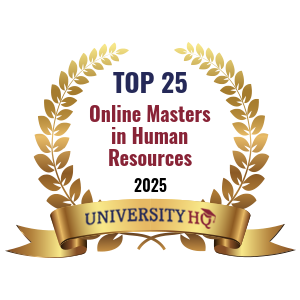What is Human Resources?
Earning a degree in human resource management can lead to a wide variety of employment opportunities in Missouri. Graduates are generally prepared to work for companies and organizations in almost any industry, with jobs available at every level. Most occupations, however, are found in business, finance, education, and healthcare.
Human resources managers typically function as a bridge between those employed and upper management at the companies and organizations they work for. Their employers can be any size and in any industry. The majority of workers can, however, be found in the professional, scientific, technical services, management, and manufacturing industries. Other relatively common sectors include healthcare, social assistance, and the government.
These professionals have many responsibilities, though their daily duties do tend to vary depending on the position held. In most cases, they plan, coordinate, and direct various administrative tasks related to workforce management. This ranges from overseeing recruitment processes and staff training to processing new employee and retirement paperwork. Human resources management professionals also often take part in strategic planning and are expected to keep top executives informed about worker satisfaction.
Notably, assignments may differ based on job title, industry, and employer size. While some are primarily responsible for managing employee benefits programs, others focus efforts on supervising the work of departmental specialists and support staff. Other duties commonly assigned include addressing staff issues through mediation and disciplinary procedures, participating in job interviews, and providing in-take briefings. Human resources managers also regularly work with other management staff members.
Notably, it’s possible for these professionals specialize in one or two aspects of the field. Some popular areas of expertise include:
- Compensation and Benefits Managers
- Training and Development Managers
- Labor Relations Directors
- Employee Relations Managers
- Payroll Managers
- Recruiting Managers
- Staffing Managers

Featured Online Programs
Online Human Resources Management Education in Missouri
According to the US Bureau of Labor Statistics (BLS), employment for human resources managers is projected to grow 7% from 2021 to 2031. This is about as fast as the average for all occupations and will result in an increase of about 16,300 jobs openings each year.
Job outlook for a similar profession in the field is slightly better. Employment for human resources specialists is expected to increase by 8% from 2021 to 2031, which is faster than the average for all occupations. This will result in an additional 81,900 relevant job openings each year. While these positions are often considered to be entry-level, they do provide a good means of entering the field.
Professional and business services is the largest industry in Missouri, accounting for $42.3 billion in revenue each year. Individuals skilled in human resources may also be able to find work in other top sectors within the state. These include manufacturing, real estate, education, healthcare, finance, wholesale, retail, entertainment, information, and construction.
Based on data provided by the BLS, Missouri employed 2,910 human resources managers and 15,030 human resources specialists as of May 2021. The annual mean wage reported for these jobs ranged between $65,080 and $124,630. Even the lower end of this income scale is above the state’s annual mean wage of $54,520 for all occupations.
Several colleges and universities located in Missouri offer higher education degrees in human resource management and other related topics. Programs are available in traditional and online formats. While distance learning makes it easy to study from anywhere with reliable internet access, those who intend to work in Missouri after graduation may benefit from enrolling at local institutions. These schools will provide the most geographically relevant instruction, ensuring that students obtain the knowledge and skills employers in the area seek most. Students will also benefit from any pre-established relationships with nearby businesses when applying for internships and professional employment.
Many colleges and universities offer human resource management programs, with enrollment options available at the associate, bachelor’s, master’s, and doctoral levels. While companies and organizations in Missouri typically set their own education standards for human resources managers, professionals in this field often require some amount of higher education. Some entry-level jobs do exist and employers may hire candidates with high school diplomas or GEDs only, but these opportunities are limited. In most cases, candidates are expected to possess bachelor’s degrees or higher.
Online Associate (AS)

Associate degrees in human resource management generally consist of 60 credit hours of coursework that take full-time students approximately two years to complete. As undergraduate programs, they are typically comprised of both general liberal arts and human resource management major classes. As a result, students can expect to study various communication, mathematics, and science subjects in conjunction with major-specific content. Curriculums vary by institution, but those enrolled often receive instruction in talent acquisition, labor laws, conflict resolution, and compensation benefits. This provides a broad introduction to the field, as well as a strong academic foundation for further learning.
Graduates are typically qualified to pursue employment as human resources assistants, human resources associates, and administrative assistants. They are rarely, however, able to attain jobs as human resources managers without several years of additional professional work experience.
Not all graduates choose to pursue employment right away. Some opt to continue their education by enrolling in bachelor’s degrees. Associate degree holders may be able to transfer the credits they earned in associate programs and have them applied toward their new programs. Most colleges and universities accept 60 to 90 hours of coursework from other accredited institutions. This is approximately half of a four-year degree, which means those with associate degrees typically need only two additional years of instruction before graduating again with a more advanced degree.
Online Bachelors (BS)

Bachelor’s degrees in human resource management often consist of 120 credit hours of coursework that take full-time students approximately four years to complete. As undergraduate programs, they are also comprised of both general liberal arts and major-specific classes. Students can expect to study basic communication, mathematics, and science subjects, as well as topics in business, accounting, team building, organizational psychology, critical thinking, and conflict resolution techniques. This provides a thorough introduction to the field and helps prepare those enrolled for further education.
In addition to standard coursework, some colleges and universities encourage human resources management majors to select concentrations. Choosing a sub-field specialty allows students to take courses that often align better with their intended profession after graduation.
Some common specialty options offered include:
- Business Administration
- Healthcare
- Accounting
- Data Science
- Organizational Leadership
According to the US Bureau of Labor Statistics, the standard minimum education requirement for most human resource management professions is the bachelor’s degree. Graduates also often qualify for employment opportunities as corporate recruiters, compensation and benefits managers, and training and development specialists.
Notably, some human resources management jobs require candidates to possess master’s degrees. Higher level degrees also typically lead to more employment opportunities and higher pay. As a result, some graduates choose to continue their education by enrolling in graduate programs. Prospective students should be prepared to meet established minimum grade point average (GPA) and Graduate Record Examinations (GRE) score requirements set by your chosen institution.
Find Your Online Human Resources Management Program
Online Masters (MS)

Master’s degrees in human resource management generally range from 30 to 36 credit hours of coursework that take full-time students approximately two to three years to complete. While graduate programs no longer incorporate general liberal arts classes, some departments require school applicants to possess certain undergraduate prerequisite courses prior to enrollment. Proof of passing grades in these classes is often necessary.
Graduate programs in human resource management are typically designed to help graduates qualify for advanced positions in the field. Curriculums vary, but often include instruction in business strategy, organizational change management, organizational ethics, effective team leadership, personnel staffing, and worker evaluation. Students can also expect to study human resources strategy, organizational culture, and talent management.
This type of degree is ideal for individuals seeking employment as human resources managers. Notably, it’s likely to prove beneficial when applying for other management positions, as well. Common examples include compensation and benefits managers, senior human resources managers, labor relations specialists, and human resources information systems managers. Graduates are often considered to have superior knowledge and skills in the field, making them highly desirable by prospective employers.
Online Doctorate (PhD)
A PhD or doctorate in human resource management generally consists of between 60 and 120 credit hours that take full-time students up to seven years to complete. Every curriculum is different, but students can expect to study various topics in compensation management, foundations of human resources theory and practice, recruiting and retaining talent, organizational behavior and performance, and creating adaptive workplaces. While the first few years of enrollment are typically spent in traditional classroom settings, those enrolled often spend more time performing independent study and research as the program progresses. In most cases, students must prepare and present dissertations before a board of professors prior to graduation.
It’s worth noting that some colleges and universities allow doctoral students to select concentrations. Common areas of specialization include:
- Human Resource Management
- Organizational Management
- Training and Development
- Benefits and Compensation
- Higher Education
These are terminal degrees meant to prepare graduates for the best employment opportunities in the field. Graduates are generally qualified for advanced careers as postsecondary educators, human resources consultants, and industrial or organizational psychologists.
Become a Human Resources Manager in Missouri
Becoming a human resources manager in Missouri typically requires some amount of higher education, as well as several years of related work experience in the field. Employer expectations vary, however, especially regarding degree level. While some companies and organizations require candidates to possess bachelor’s degrees, others only consider applicants with master’s degrees.
Individuals interested in this field commonly pursue degrees in human resources, but other majors may be suitable as well. Popular undergraduate alternatives include business, communications, and psychology. At the graduate level, prospective students may benefit from majoring in labor relations or business administration. When possible, students are also encouraged to take courses related to conflict management and resolution. Knowledge and skills in this area often prove highly useful to human resources professionals.
After completing the necessary degree program(s), you will generally need to acquire some relevant work experience prior to becoming a human resources manager. Many professionals in this field start out as human resources specialists or labor relations specialists. These positions can help you further develop skills in organizations, management, and leadership. They will also provide opportunities to learn about various elements of the profession including human resources programs, compensation and benefits planning, human resources software, and applicable laws at the local, state, and federal levels.
Many human resource management professionals also pursue certification. While earning addition credentials is generally voluntary, it demonstrates credibility and expertise in the field. This can enhance job prospects and pay potential, especially because prospective employers tend to give preference to candidates who possess relevant certifications.
Find Online Human Resources Management Programs
It’s important to note that there is no single most important credential for professionals in this field. Instead, you can select any certification(s) you feel align well with your interests and/or career goals. Consider the options carefully before choosing, keeping in mind credential sustainability, accessibility, learning format, and skills focus.
Many professional associations offer certification programs, such as the Society for Human Resource Management (SHRM), HR Certification Institute (HRCI), and International Foundation of Employment Benefit Plans.
Some of the most popular credentials available to human resources managers include:
- Society for Human Resources Management Certified Professional (SHRM-CP) via SHRM
- Society for Human Resources Senior Management Certified Professional (SHRM-SCP) via SHRM
- Certified Human Resources Professional (CHRP) via the Human Resources Professionals Association (HRPA)
- Certified Professional in Learning and Performance (CPLP) via Association for Talent Development (ATD)
- Professional in Human Resources (PHR) via the Human Resources Certification Institute (HRCI)
- Talent Management Practitioner (TMP)
- Strategic Human Resources Leadership (SHRL) via the Human Capital Institute
It’s important to note that there are several positions closely related to human resources manager. As a result, you should spend some time determining your exact career goals prior to enrolling in an academic degree program. Every occupation has different education, experience, and certification requirements. Identifying these early can help ensure you possess the necessary qualifications to apply for your preferred profession.
Potential Careers for Human Resources Management Graduates
- Compensation and Benefits Manager
Compensation and benefits managers work in human resources departments for companies and organizations. They have many responsibilities, but are ultimately tasked with ensuring employee satisfaction with pay, benefits, and retirement processes. They are also expected to verify that all laws and regulations are properly followed. Another common duty is finding ways to boost awareness of policy changes and/or package options available to workers. According to PayScale, compensation and benefits managers make an average base salary of $88,097 per year. - Human Resources (HR) Assistant
HR assistants work for companies and organizations overseeing various administrative tasks for human resource departments. Responsibilities vary, but often include completing on-boarding paperwork with new hires, terminating employment contracts, administering worker benefits, and orchestrating workplace programs. They often represent their employer when communicating with other employees and may also work to promote the use of fewer resources and/or increase staff satisfaction to improve overall departmental efficiency. According to PayScale, HR assistants make an average base salary of $42,661 per year. - Human Resources (HR) Manager
HR managers work for companies and organizations overseeing various aspects of human resource departments. They are often responsible for employee policies and procedures, as well as legal compliance. This means ensuring all human resources activities comply with local, state, and federal laws. They also design, implement, and manage benefits and initiative programs such as flexible work arrangements, maternity leave, open enrollment, sick leave, and vacation time. According to PayScale, HR managers make an average base salary of $70,245 per year. - Labor Relations Specialist
Labor relations specialists help companies and organizations resolve issues with labor relations matters. Depending on the situation, they may be hired to create collective bargaining agreements or oversee negotiations processes in accordance with federal government regulations. They are also commonly expected to participate in investigations and administer disciplinary action to an employee found in noncompliance. In some cases, they may also be tasked with conducting labor relations trainings, participating in employee hiring processes, performing social media maintenance, and/or managing vital data documentation. According to PayScale, insurance labor relations specialists make an average base salary of $73,764 per year. - Legal Secretary
Legal secretaries work in law firms. Their primary responsibility is providing legal support services to the attorneys, but they often completed a wide variety of secretarial duties. Common tasks include answering phones, making photocopies, scheduling appointments, arranging legal correspondence deliveries, processing legal papers, and organizing and maintaining documentation. They may also be asked to perform in-take interviews with clients before making referrals to specific lawyers. According to PayScale, legal secretaries make an average base salary of $57,697 per year. - Receptionist
Receptionists are hired by companies and organizations to perform a wide variety of duties. While responsibilities vary by industry, they are often expected to screen incoming calls, take and distribute messages, and inform employees when people arrive for appointments. They are typically the first representative individuals interact with when contacting or visiting businesses. As a result, excellent customer service skills are essential. Other common tasks include signing for postal deliveries, managing employee calendars, and coordinating workers. According to PayScale, receptionists make an average base salary of $34,799 per year. - Business Training and Development Specialist
Training and development specialists create modern learning solutions for companies and organizations. Using adult education theory, they may design short instructor-led exercises or entire educational programs. They may also be expected to develop work-related training materials, guides, and presentations, which often requires collaborating with subject matter experts and/or management to evaluate and improve existing materials and methods. According to PayScale, training and development specialists make an average base salary of $58,520 per year. - Business Administrator
- Business Manager
sources:
Search All Programs
